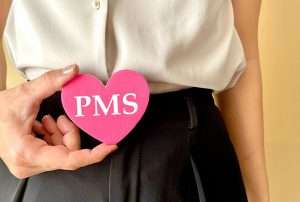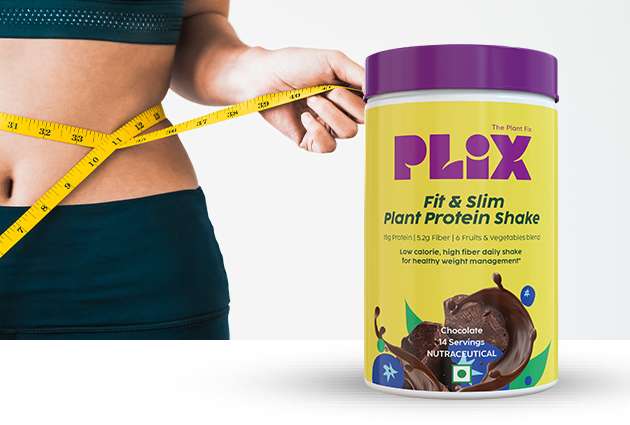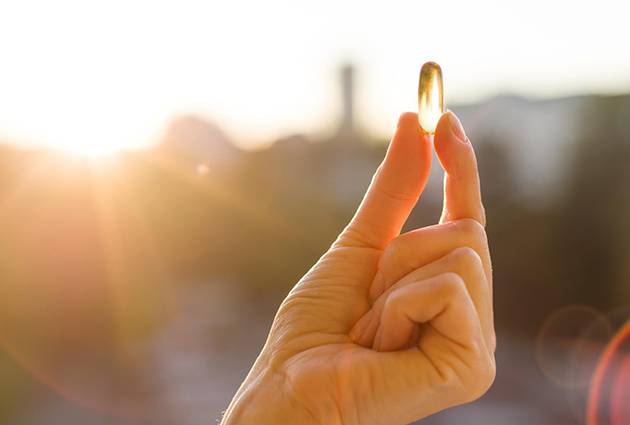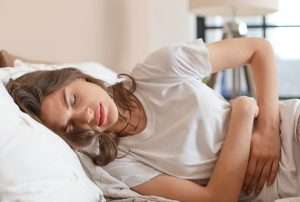What are the causes of PMS?

What are the causes of PMS?
For us girls, planning a trip can really get to the nerves no? This is how a normal trip conversation goes in a friend group.
Girl 1: It has been a while ya, why don’t we all just go somewhere
Boy 1: IKR! Lets plan. Let’s do it this weekend or next.
Boy 2: Yes, let’s just go, man
Girl1, Girl 2, Girl 3, Girl 4: Umm sure, let me just check my calendar and confirm
And we all know what happens after that, don’t we?
The right time to go for a trip always revolves around period dates.
The painful part about having your periods is not just periods but also what comes before that. Pre-Menstrual Syndrome (PMS).
What is PMS and what are the causes of PMS?
PMS describes a woman’s mood swings and physical PMS symptoms related to her menstrual cycle that are severe enough to impair her quality of life. Clinically speaking, PMS affects our social interactions, work performance, and interpersonal relationships. Poor physical and mental health were substantially correlated with PMS.
There are many different signs and PMS symptoms, including mood changes, tender breasts, cravings for food, tiredness, agitation, and sadness. In terms of symptoms, there is a predictable pattern of recurrence. Premenstrual syndrome, however, can cause subtle to severe physical and emotional changes in certain people.
PMS Symptoms may vary from person to person
Some women may have very minor or no PMS symptoms when they start their period. Others may find it difficult to carry out daily tasks like going to work or school because their PMS symptoms are so intense. Premenstrual dysphoric disorder may be present if the PMS symptoms are severe (PMDD). When you stop having periods, such as after menopause, PMS fades away. After giving birth, PMS may return, but you can experience different symptoms.
Causes of PMS
According to studies, the hormonal changes that take place during the menstrual cycle may play a role. The hypothalamus releases norepinephrine in response to lower oestrogen levels. Norepinephrine is a brain molecule that functions as a neurotransmitter and hormone. Acetylcholine, dopamine, and serotonin levels in the brain then start to decline as a result of norepinephrine. Many of the psychological and neurological PMS symptoms, including depression, sleeplessness, and exhaustion, may be caused by the alteration in the amounts of these chemical compounds.
Some people’s physical discomfort and emotional stress are so severe that it interferes with their daily life. Regardless of the severity of the symptoms, most women’s signs and symptoms go away four days following the start of their menstrual cycle.
PMDD (Premenstrual dysphoric disorder)
Depression, mood swings, rage, anxiety, feeling overburdened, difficulty concentrating, impatience, and tension are some of the indications and symptoms of PMDD.
Premenstrual syndrome symptoms can be minor, moderate, or severe. Changes in appetite, weight gain, back pain, low back pain, headaches, breast swelling and tenderness, nausea, constipation, anxiety, irritability, hostility, weariness, restlessness, mood swings, and sobbing are just a few of these symptoms that may appear.
Affective symptoms might last anywhere from a few days to two weeks. Symptoms frequently get worse a week before and peak two days before the start of menstruation. The risk of PMS is somewhat increased by alcohol consumption. As a result, recording the patient’s history of alcohol use can aid with counselling and, in turn, can help with symptom relief.
How to tackle PMS
Regular exercise, avoiding stressful situations, and keeping sound sleeping patterns, particularly during the premenstrual period, are examples of lifestyle adjustments. Tryptophan, a precursor of serotonin, is increased when complex carbs are consumed more frequently.
The goal of cognitive-behavioural therapy (CBT) is to rectify disruptive, unbalanced ideas, behaviours, and emotions. CBT aids in the identification of these behaviours and the creation of coping mechanisms to enhance day-to-day functioning.
Balance PMS Gummies for treating PMS
If you are looking for natural ways to treat PMS, you should consider Balance PMS Gummies from Plix Life. It is powered with Vitamin B6 which helps to control the body’s serotonin and norepinephrine levels, which influence how well the neurological system functions and how well one can handle stress. It also contains chasteberry which is a powerful ingredient for reducing fatigue and irritability.
Chasteberry, Ginseng, Vitamin B6, and Magnesium, which prevent PMS, are among the 100% natural and clinically tested ingredients and herbs included in its formulation.
FAQs
What is PMS?
After ovulation and prior to the beginning of their menstrual cycle, many women experience PMS, a combination of physical and emotional symptoms. Researchers believe that PMS occurs in the days following ovulation because, if you are not pregnant, your oestrogen and progesterone levels start to fall drastically. After a woman’s menstruation begins, PMS symptoms disappear quickly as her hormone levels start to rise. Some women may have very minor or no PMS symptoms when they start their period. Others may find it difficult to carry out daily tasks like going to work or school because their PMS symptoms are so intense. Premenstrual dysphoric disorder may be present if the PMS symptoms are severe (PMDD). When you stop having periods, such as after menopause, PMS disappears. After giving birth, PMS may return, but you can experience different symptoms.
Does PMS alter as we age?
Yes. As you enter your late 30s or early 40s and approach menopause, also known as perimenopause, your PMS symptoms may worsen. This is particularly valid for females whose moods are susceptible to fluctuations in hormone levels during the menstrual cycle. Your hormone levels fluctuate erratically in the years before menopause as your body gradually prepares for the change. The mood swings could remain the same or perhaps worsen. When you reach menopause and stop having periods, PMS ends.
What are the symptoms of PMS?
Each woman has a unique set of PMS symptoms. You could experience both physical and emotional symptoms, such gassiness or bloating, or none. As you age, your symptoms may also alter.
Physical symptoms:
- Swollen or tender breasts
- Constipation or diarrhea
- Bloating or a gassy feeling
- Cramping
- Headache or backache
- Clumsiness
- Lower tolerance for noise or light
Emotional symptoms:
- Irritability or hostile behavior
- Feeling tired
- Sleep problems (sleeping too much or too little)
- Appetite changes or food cravings
- Trouble with concentration or memory
- Tension or anxiety
- Depression, feelings of sadness, or crying spells
- Mood swings
- Less interest in sex
What are the benefits of consuming Balance PMS Gummies?
Premenstrual syndrome (PMS) problems like cramps, acne, irritability, tension, mood swings, and more can be treated with the use of natural substances and herbs like Chaste Berry, Ginseng, Vitamin B6, and Magnesium that Balance PMS Gummies contain.
Do they have any side effects?
We use only natural ingredients in our gummies like chaste berry, ginseng, vitamin B6 and magnesium which are proven to show tremendous effects in keeping PMS away. However, in case of any allergy/health issue, it is best to consult a doctor and then consume.














